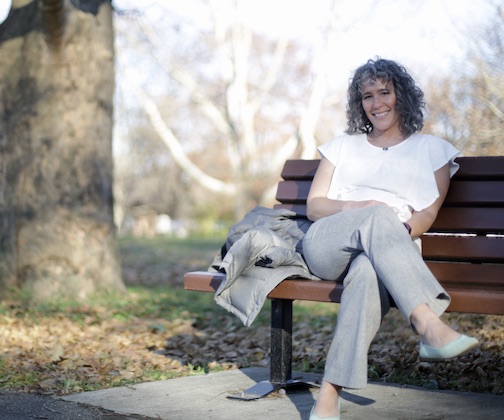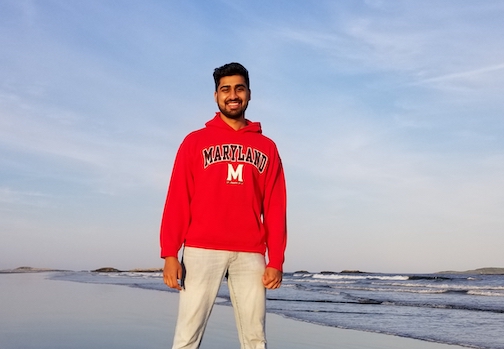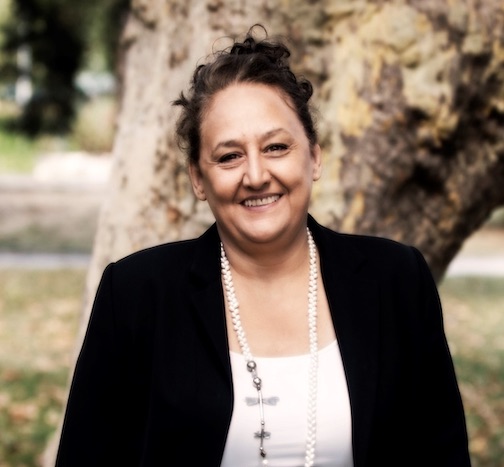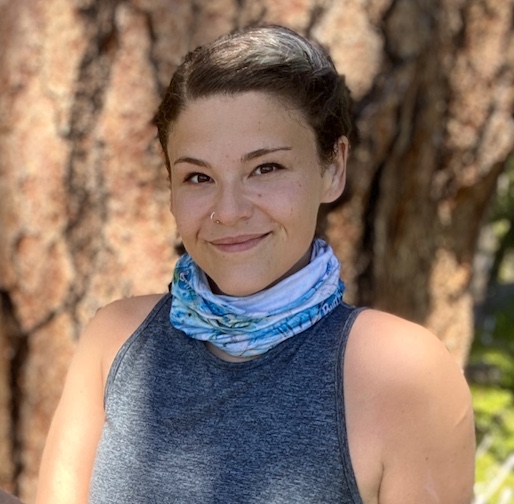For as long as I can remember, I have experienced "big" feelings. As a child of parents who were loving, but ultimately disconnected from their own emotional worlds, I was a considered a good kid, but a handful. In the Midwest especially, where passive aggression and "politeness" reign, big, public displays of emotion were considered inappropriate and even rude. Why would you want to ruin someone else's day with your own problems or issues? It's a funny irony for those who consider small towns bastions of community and connection. Despite this overarching culture, I have copious amounts of love for my hometown and am incredibly grateful for what was, on balance, a very blessed childhood.
But my story is not about a small town or family unit that couldn't handle people with big feelings. My story is about a consistent and steady stream of mental health issues that have, ultimately, left me with an expansive set of skills and tools to help navigate life. With great privilege and support from family, I have been in some form of talk therapy for 20 years. While many children may enter therapy at the behest of their parents, I requested to see a therapist at the age of 12.
It's so long ago that I can't remember the impetus for that request, but there are clues. After having big feelings for so long, being labeled the "dramatic" one in the family, and sensing that I was different than other people, maybe I was hoping to find a kinder set of ears to help me navigate the world. I was also teased mercilessly as a child for my weight, both from other children at school, and within my family unit, so maybe I was also seeking relief from that.
Similar to "big" feelings, weight, body, and food issues have been present in my life for as long as I can remember. In first grade, I recall an assignment where we were asked to write down our height and weight at the beginning and end of the year. I remember looking at other girls' projects and wondering why my weight was so much higher. And it was not just a simple fact that mine was higher; at age 6 I already knew a heavier weight meant I was "bad" and not worthy of respect.
These views were reinforced on the TV show I watched and in the culture of my family unit. With genetics that predispose us to living in larger bodies, the self-hatred in my family was strong. There's even a running joke about my father's wacky eating habits (spoiler alert: it's disordered eating, and could be considered anorexia by some measures). I was put on diets starting at age 6, and comments about my body and food choices were and ever-present reminder that while I was loved, there might be conditions to that love.
At age 16, when puberty finally hit and my body began to change, I was at what would be my lowest weight as an adult until my thirties. During that time, despite the fragility of my teenage self-worth and the fact that I was incredibly active, I remember a specific instance where my family doctor (a woman I trusted and looked up to) told me that I should go on a diet and that all one really needs in a day is 1,200 calories. She said this to me, a 16 year-old.
That year I started making myself throw up meals. With seemingly no success in traditional dieting, I saw throwing up meals as a way to successfully keep my calorie intake down. The idea that this would be considered an eating disorder didn't even cross my mind. At that point in time, information about eating disorders was available, but generally only referred to emaciated 90-lb teen girls who were starving themselves. A size 10/12 athlete throwing up meals may be an aberration, but it wouldn't be considered an "eating disorder". Thank goodness that perception has changed and we now know eating disorders are present in all types of bodies.
These body issues colored every aspect of the otherwise challenging process of being a teenager. I was achievement-driven, facilitated by high expectations from my family. I was an AP student, an athlete, and heavily involved in music activities through band, musical theatre, and private voice and saxophone lessons. As is typical of folks with eating disorders, I was exacting, perfectionistic, and never felt like I was good enough. While achievements were celebrated at home, the sense of not being good enough was perpetuated there as well.
At age 17, I was cast as Maria in our high school production of West Side Story. Having been in voice lessons for three years, and given how much I loved that role, I was beside myself with excitement. I decided to go thank our theatre department director for casting me in the role. When I arrived in her office and thanked her for casting me, her response was, "Yeah, you're welcome...but you're going to have to lose some weight." My heart sank, my body started getting shaky, but as I often did when adults criticized me, I just nodded and agreed. She continued, "You know, Maria is supposed to be delicate, light, airy..." I responded, "Do you think maybe 20 or 30 pounds would be enough? Like a size 8 or so?" She replied, "Yea, you know, just do some yoga...it's like I tell my daughter, you've got to keep on top of it".
Writing about that specific incident at age 31 is surreal because as an adult, I can see that everything the director said to me was a reflection of her own internal world, insecurities, and shame. The comment about her daughter, too, is revealing. I can see this clearly as an adult, but as a teenager I only saw an authority figure who I was required to respect and trust. And at that point, I believed her when she said that I looked overweight.
Given my upbringing, the specific time in history in to which I was born, and my genetics, it would have been surprising if I'd not developed some kind of eating disorder. The comorbidity of anxiety and depression in eating disorders is well documented, too. Those "big" feelings as a kid translated into intense, sometimes "scary" feelings as a teenager, and ultimately culminated in a major depressive episode at age 16. There are strong opinions around medicating teens, but I know for me, medication was a lifesaver.
For the past 15 years, I have been on some form of medication to help manage depression/anxiety and bulimia. After five years of therapy with therapists specifically trained to treat eating disorders, I entered bulimia recovery in September 2016 and have maintained that recovery to this day. Recovery has been achieved through a combination of talk therapy, medication management, intuitive eating, creative outlets, joyful movement (not exercise), and positive self-talk.
Connecting to those things that bring me happiness – such as singing and hiking – has helped ground me in what truly matters, but ultimately my success is the result of a shift in mindset and a daily, active rejection of diet culture. My sincere wish, though, is for those without diagnosed eating disorders to see that they, too, can reject diet culture.
On a recent social media post, author Glennon Doyle said, "You don't have to be an alcoholic to choose to stop drinking." I feel the exact same way about eating disorders and diet culture. You do not have to have an anorexia diagnosis to decide that your worth is more than your weight. While health-at-ever-size movements are growing, the majority narrative in society and medical communities is still focused on a "weigh-loss equals health" model. You do not need to lose weight to be worthy of respect and love, and a lower weight does not automatically equal better health.
My life has blossomed since I recovered from my eating disorder. The daily time, energy, and resources previously dedicated to obsessing about calories and weight has been redirected to passions such as starting my own business, performing with Seattle Opera, and scaling mountains in the Cascades. Whether you have an eating disorder or not, you, too, can give yourself permission to live outside of diet culture and weight stigma. You may be pleasantly surprised to find how much your world grows.
More Stories from Kinnected

At times, it has been really frustrating to be a strategist and health communication professional and witness the lack of strategic planning and messaging that we have over the last two years.
-
4 years ago

"What many people miss is that emotional exhaustion among clinicians existed long before the pandemic."
-
4 years ago

"A lot of people argue whether technology is good for the future of humanity or bad. In my opinion, it is both - just as an herb could be a poison or a medicine."
-
4 years ago

